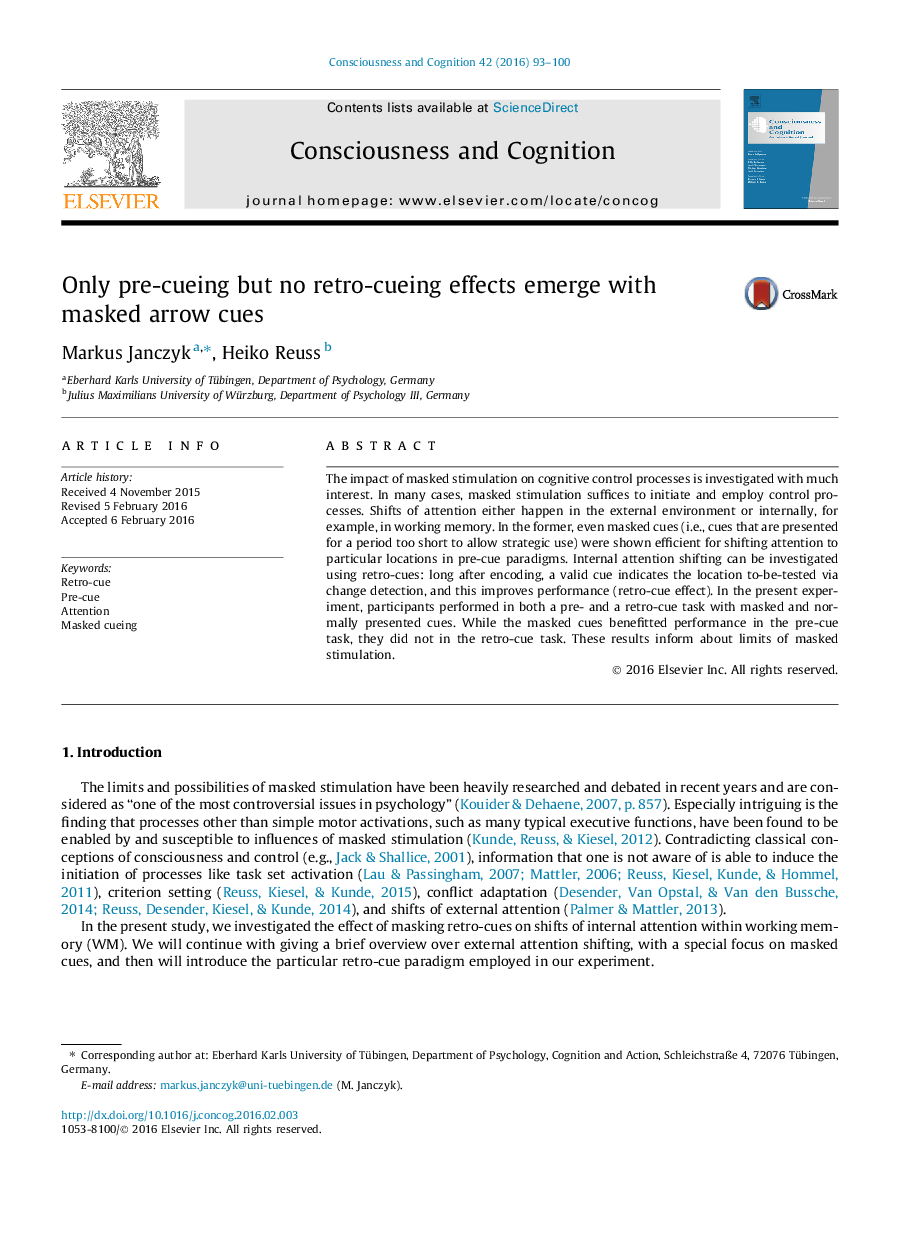| Article ID | Journal | Published Year | Pages | File Type |
|---|---|---|---|---|
| 7288437 | Consciousness and Cognition | 2016 | 8 Pages |
Abstract
The impact of masked stimulation on cognitive control processes is investigated with much interest. In many cases, masked stimulation suffices to initiate and employ control processes. Shifts of attention either happen in the external environment or internally, for example, in working memory. In the former, even masked cues (i.e., cues that are presented for a period too short to allow strategic use) were shown efficient for shifting attention to particular locations in pre-cue paradigms. Internal attention shifting can be investigated using retro-cues: long after encoding, a valid cue indicates the location to-be-tested via change detection, and this improves performance (retro-cue effect). In the present experiment, participants performed in both a pre- and a retro-cue task with masked and normally presented cues. While the masked cues benefitted performance in the pre-cue task, they did not in the retro-cue task. These results inform about limits of masked stimulation.
Related Topics
Life Sciences
Neuroscience
Cognitive Neuroscience
Authors
Markus Janczyk, Heiko Reuss,
